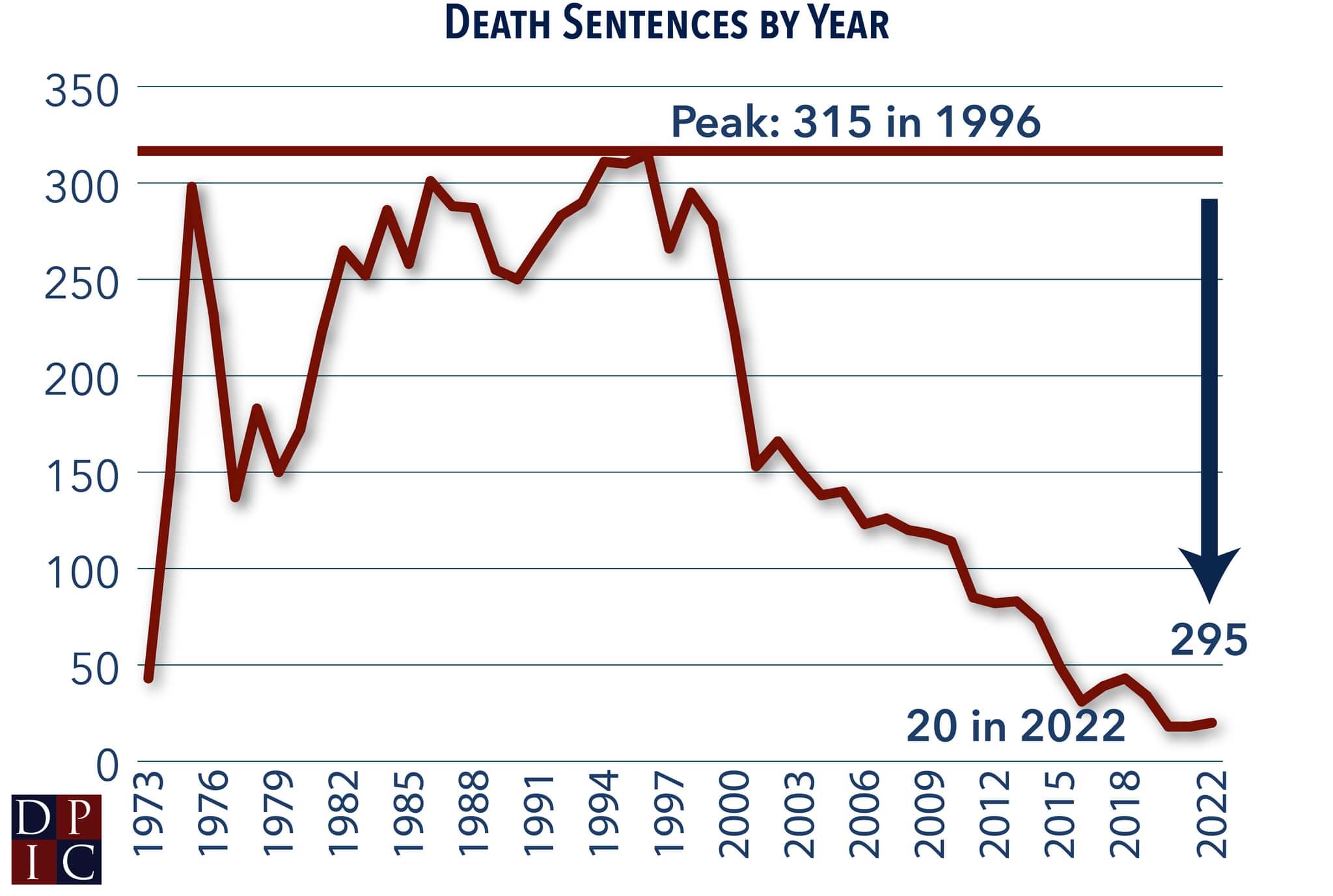
In a year in which political campaigns and media drove public perception of rising crime to record highs, support for the death penalty in 2022 remains near the lowest it’s been in 50 years. Even among conservatives, support for the death penalty fell five percentage points, despite a barrage of media stoking fear in the lead-up to midterm elections.
These kinds of perceptions have historically tracked with support for the death penalty. But in the face of ongoing pandemic and fear mongering, 2022 has proven that our work with allies across the movement continues to be effective. The end of the death penalty remains on the horizon.
This is just one part of the story documented by our friends at the Death Penalty Information Center in their annual year-end report. This was the eighth year in a row with fewer than 30 executions and fewer than 50 new death sentences, with 18 and 21 respectively. The unwillingness of a jury to sentence Nikolas Cruz to death after he killed 17 people in a Parkland, Florida high school showed, once again, how arbitrary the death penalty is. Botched executions and problems with protocols led Alabama,Tennessee, Idaho, and South Carolina to halt executions, joining Oregon, California, Pennsylvania, and Ohio that already have moratoria in place. Kentucky passed a measure to ensure that people with serious mental illness cannot be executed, and Utah, Nevada, and Ohio all made significant strides toward legislative repeal of the death penalty.
For those of us that have been part of the movement to end the death penalty, we also know that the horrifying reality remains the same: the people who are most vulnerable are those most likely to be sentenced to death and executed. At least 12 of the 18 people executed in 2022 had chronic serious childhood trauma, neglect, and/or abuse; eight had serious mental illness, and five had brain injury, developmental brain damage, or an IQ in the intellectually disabled range.

Our collective systems — including child protection, legal, and health — failed each of these people and their families over and over. We failed them. Most of all, we failed to intervene with the healing that they needed when they needed it meant, which meant we failed their victims, victims’ families, and other community members that continue to be harmed.
In 2022 the death penalty system continued to hurt everyone it touched, including prison personnel and victims’ family members. It hurt Black and Brown people the most, including disproportionately executing people of color, and disproportionately executing people who kill white people. Substantial evidence emerged that Black people were removed from juries in death-eligible cases at two times the rate of white people in North Carolina, and more than two times the rate in Florida, where Black women were excluded two-thirds of the time. Three of the four exonerees in 2022 were Black, and one was Latina.
While California enacted the Racial Justice Act for All to address these disparities, and states like Alabama took important steps that recognize the trauma of the death penalty and halted executions, Oklahoma doubled down on a commitment to death. In July, Oklahoma set 25 execution dates, setting a path to an unprecedented killing spree that has already claimed the lives of two people with serious mentally illness.
Despite all of this, we can find hope as the year closes in the steady decline of the death penalty. We can look to Ohio, where repeal is on the horizon, and Arizona where leaders are paving a path to repeal. We can be inspired by action in Oregon, where Governor Kate Brown commuted all 17 of the state’s death sentences, and to Nevada, where Governor Sisolak is poised to do the same. Most of all, we can look to each other, knowing that what we’re doing together is bringing an end to the death penalty. Our work will continue in 2023.



